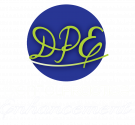Dentists know that, when it comes to clinical care, there are no small mistakes. But in the realm of dental coding and insurance, there are no small mistakes either. That is why it is so important to have failsafe methods in place for your billing and insurance.
At Dental Practice Enhancement, we understand that dentists and their administrative teams work hard to ensure proper insurance protocol. Even so, delays and mistakes happen. That is why our virtual administrators double check all coding when filing insurance claims.
You can feel confident about your insurance claims and coding when you work with our virtual administrators. Contact Dental Practice Enhancement today to learn more about how we can assist you.
Mistake #1: Incorrect Coding
Have you thoroughly read your PPO provider manual? Do you know the details of state and federal laws that regulate health insurance? In reality, most dentists haven’t. Even if they had, they are not likely to remember all the minute details. Yet ignorance of dental coding, as well as billing and insurance regulations, can set your practice up for serious legal trouble.
Furthermore, the ADA is required to update the CDT code annually to reflect changes in dental procedures. So it’s far too easy to list outdated codes on reimbursement forms.
Mistake #2: Incomplete Clinical Records
All clinical records must be signed by the dentist. If they are not, insurance can deny that a doctor actually did the work. In fact, Medicaid states that unsigned entries should be “excluded from consideration when performing a medical review.”
In addition, dentists must thoroughly explain clinical reasons for extensive procedures. Why was a surgical extraction done, rather than a standard extraction? Was there actual evidence of gum disease when a doctor performed scaling and root planing?
Of course, most dentists don’t intentionally overcharge or recommend unnecessary treatment. But repeated administrative errors are considered “reckless disregard” and can put you at risk for a charge of fraud.
Mistake #3: Waiting Too Long to Submit Claims
Different insurance providers have varying guidelines as to how long dental offices have to submit a claim. While some companies allow claim submittals for up to a year, Medicaid only gives dentists 90 days. Plus, the longer you wait to file a claim, the more likely it is to contain coding errors or other administrative mistakes.
DPE Can Help with Dental Coding and Insurance
If you are feeling overwhelmed by the administrative side of your practice, DPE can help. Our virtual administrators can process your dental insurance claims. With our services, you know your claims will be complete and submitted in a timely fashion. Plus, they will double check coding when submitting your claims. Our team members stay up-to-date on all CDT code changes, so you don’t have to worry about serious errors, charges of fraud, or malpractice lawsuits.
Contact Dental Practice Enhancement
To benefit from our services or to learn more about what we do, contact us today.
Complete our online form or call us at 833-DPE-FOR-U.





